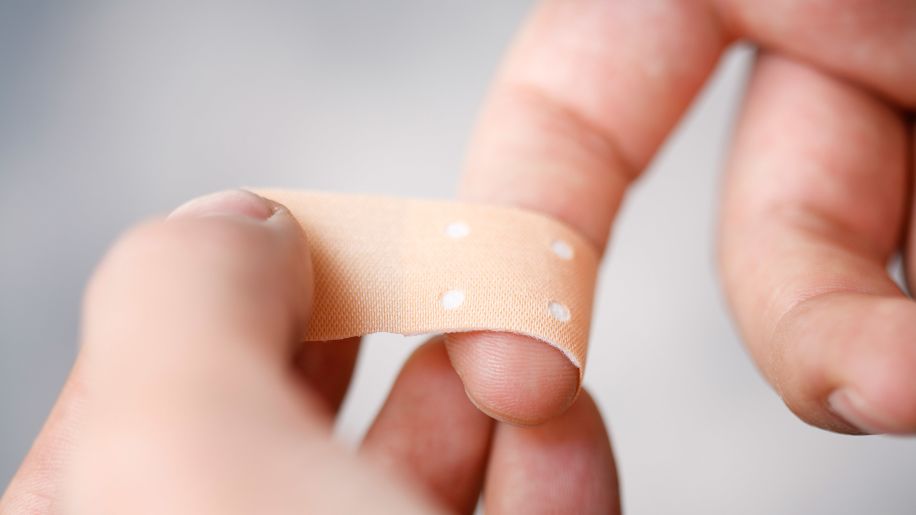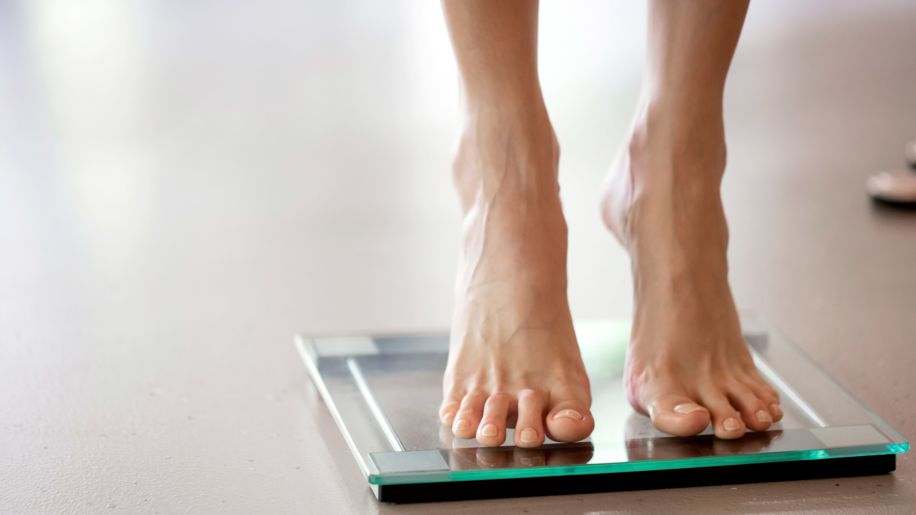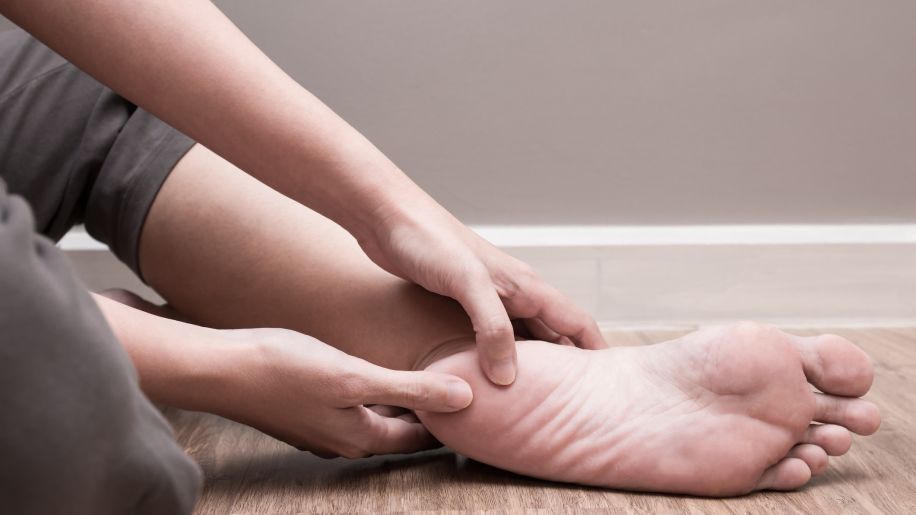10 symptoms of diabetes
Signs can be subtle. Keep an eye out for these common diabetes symptoms.

Could You Have Diabetes?
For some people, the symptoms of diabetes are obvious. Unrelenting thirst, frequent urination and constant fatigue are surefire tip-offs that something is amiss. But not all symptoms are this clear. In fact, many people may have no symptoms at all until a blood test tells them they have diabetes. This matters, because the earlier you catch diabetes, the sooner you can… Show More
For some people, the symptoms of diabetes are obvious. Unrelenting thirst, frequent urination and constant fatigue are surefire tip-offs that something is amiss. But not all symptoms are this clear. In fact, many people may have no symptoms at all until a blood test tells them they have diabetes. This matters, because the earlier you catch diabetes, the sooner you can take control of it and prevent complications. Here are 10 symptoms that suggest you could have diabetes.
Show Less
Diabetes Symptom #1: You feel fine
For many people, diabetes causes no symptoms at all, especially early on. In fact, experts estimate that about 7.2 million people in the U.S. have undiagnosed diabetes. Early signs and symptoms can be vague, causing you to dismiss them or confuse them with other problems. Some people simply don't… Show More
For many people, diabetes causes no symptoms at all, especially early on. In fact, experts estimate that about 7.2 million people in the U.S. have undiagnosed diabetes. Early signs and symptoms can be vague, causing you to dismiss them or confuse them with other problems. Some people simply don't have noticeably high blood sugar, says Gregg F. Gerety, MD, an endocrinologist in Albany, New York. "Others get used to feeling poorly," he adds.
Even subtle changes in the way you feel can be a good reason to see your doctor. Often, people don't realize how bad diabetes has been making them feel until after they get help.
Show Less
Diabetes Symptom #2: Thirst and frequent urination
People with diabetes may urinate as many as 20 times a day, with a full bladder every time, says Melvin Stjernholm, MD, an endocrinologist in Boulder, Colorado.
Your kidneys filter blood, keeping substances you need and getting rid of what you don’t. Since glucose is your main source of… Show More
People with diabetes may urinate as many as 20 times a day, with a full bladder every time, says Melvin Stjernholm, MD, an endocrinologist in Boulder, Colorado.
Your kidneys filter blood, keeping substances you need and getting rid of what you don’t. Since glucose is your main source of energy, your kidneys try to keep it out of urine. When you have extra glucose in your blood due to diabetes, your kidneys can’t quite keep up, and some of the glucose is lost into urine.
As this happens, the extra glucose soaks up water everywhere in your body, causing you to urinate more often. Frequent urination causes your body to become dehydrated—and you end up feeling very thirsty.
Show Less
Diabetes Symptom #3: You're tired all the time
Everyone experiences fatigue at one time or another. The combination of having too much to do and not enough sleep is a common problem.
But if you have diabetes, glucose can’t get into your cells properly. It’s almost as if they’re starving while their main source of energy lies just outside. When… Show More
Everyone experiences fatigue at one time or another. The combination of having too much to do and not enough sleep is a common problem.
But if you have diabetes, glucose can’t get into your cells properly. It’s almost as if they’re starving while their main source of energy lies just outside. When glucose stays in your bloodstream rather than being used by your cells, you can end up feeling very tired. And if you're making nightly trips to the bathroom, you'll be even more exhausted.
Show Less
Diabetes Symptom #4: Frequent yeast infections
Bacteria and yeast thrive in an environment with lots of sugar. That's why people with diabetes are often prone to such infections, says Betul Hatipoglu, MD, an endocrinologist at Cleveland Clinic.
Common sites for yeast infections include the mouth (called "oral thrush") and the vagina, as… Show More
Bacteria and yeast thrive in an environment with lots of sugar. That's why people with diabetes are often prone to such infections, says Betul Hatipoglu, MD, an endocrinologist at Cleveland Clinic.
Common sites for yeast infections include the mouth (called "oral thrush") and the vagina, as well as places where you sweat, such as the armpits, the skin between your toes and under the breasts. Itchy skin, a rash, white patches in your mouth and vaginal itching, pain and discharge are some of the most common signs of a yeast infection.
Women with diabetes also have more frequent bacterial urinary tract infections, where burning while urinating is the most common symptom.
Show Less
Diabetes Symptom #5: Cuts and bruises heal slowly
When you have an injury or infection, your body sends white blood cells to heal the damaged tissue. But too much glucose in your blood can slow the work of white blood cells, resulting in cuts and bruises that never seem to heal.
"Even minor injuries like a cut with a razor will take longer… Show More
When you have an injury or infection, your body sends white blood cells to heal the damaged tissue. But too much glucose in your blood can slow the work of white blood cells, resulting in cuts and bruises that never seem to heal.
"Even minor injuries like a cut with a razor will take longer to heal and may become infected," Hatipoglu says. "When your blood sugar goes up above 200, your white blood cells can't fight really well. And that weakens your immune system."
Show Less
Diabetes Symptom #6: Frequent colds and flu
The same weakened immune system that makes your cuts and bruises heal slowly can also make you more vulnerable to the viruses that cause colds and flu. "It's like a traffic jam where white blood cells can't get to the site of an infection or illness," Hatipoglu says. The result if you have diabetes?… Show More
The same weakened immune system that makes your cuts and bruises heal slowly can also make you more vulnerable to the viruses that cause colds and flu. "It's like a traffic jam where white blood cells can't get to the site of an infection or illness," Hatipoglu says. The result if you have diabetes? You may find yourself recovering from one cold—just to catch another.
Show Less
Diabetes Symptom #7: Your vision is blurred
If you notice that things are looking fuzzy, consider getting checked for diabetes. Excess glucose in the bloodstream travels to the eyes and produces a sugar called sorbitol that obstructs your vision. It's as if you're looking through a glass that isn't clear, says Hatipoglu. "I've had patients… Show More
If you notice that things are looking fuzzy, consider getting checked for diabetes. Excess glucose in the bloodstream travels to the eyes and produces a sugar called sorbitol that obstructs your vision. It's as if you're looking through a glass that isn't clear, says Hatipoglu. "I've had patients who get new glasses, only to find out later their problem is from diabetes. Once I treat the diabetes, the blurred vision gets better."
Show Less
Diabetes Symptom #8: Unexplained weight loss
You might be thrilled to notice you've dropped a few pounds—and without even trying. But in people who have diabetes, sudden or unexplained weight loss may be a sign the disease is badly out of control. When cells aren't getting the energy they need from food, the body starts to break down muscle… Show More
You might be thrilled to notice you've dropped a few pounds—and without even trying. But in people who have diabetes, sudden or unexplained weight loss may be a sign the disease is badly out of control. When cells aren't getting the energy they need from food, the body starts to break down muscle and fat for energy, says Stjernholm. "Breaking down fat for energy can produce ketones, which are toxic." If you don't know why you're losing weight, schedule a visit with your doctor.
Show Less
Diabetes Symptom #9: You're always hungry
If you aren't exercising more or eating less, but notice you're hungry a lot, it could be a sign of diabetes. To refresh your memory: When your blood glucose level is high, you lose some glucose into the urine. That glucose is your body’s source of energy. Energy means calories, so if you lose… Show More
If you aren't exercising more or eating less, but notice you're hungry a lot, it could be a sign of diabetes. To refresh your memory: When your blood glucose level is high, you lose some glucose into the urine. That glucose is your body’s source of energy. Energy means calories, so if you lose glucose into the urine, you’re losing calories. The result: you’re hungry and may be eating a lot, often while still losing weight. High blood glucose can also make you feel tired and does damage to your eyes, kidneys and nerves.
Show Less
Diabetes Symptom #10: Numbness, tingling or pain
Numbness, tingling, or pain in your feet or hands may be a sign of peripheral neuropathy, a condition caused by damage to your nerves. No one knows exactly why diabetes causes neuropathy, or whether it's the result of too much glucose, excess insulin or another metabolic changes, says Todd Levine,… Show More
Numbness, tingling, or pain in your feet or hands may be a sign of peripheral neuropathy, a condition caused by damage to your nerves. No one knows exactly why diabetes causes neuropathy, or whether it's the result of too much glucose, excess insulin or another metabolic changes, says Todd Levine, MD, co-director of the Banner Samaritan Neuropathy Clinic in Phoenix. "In many cases the development of neuropathy may be the first sign that you have a problem."
Show LessFeatured Content

slideshow

article
